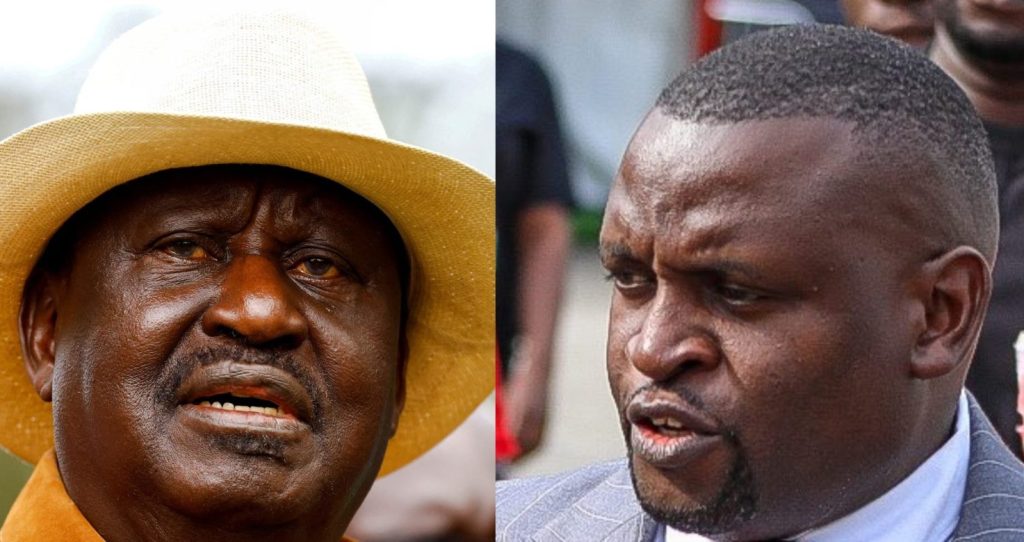The President of the Revolutionary People’s Party (RPP) and Leader of the Uganda Federal Democratic Organization (UFDO), Bulira Frank Kabinga, who is among the eight candidates vying for Uganda’s top seat has expressed deep sorrow following the death of former Kenyan Prime Minister Raila Odinga, an iconic leader, who passed away on October 15, 2025, at the age of 80.
Odinga died in Kochi, India, after suffering a cardiac arrest . He had been undergoing treatment for an undisclosed condition and was surrounded by family at the time of his passing.
Bulira described Odinga as a courageous statesman, human rights defender, and a believer in people-centred leadership.
He extended heartfelt condolences to Mrs. Aida Odinga and the people of Bondo and Siaya County, saying “the name Raila will forever be remembered in Kenya, East Africa, and the world.”
Bulira added that Odinga’s legacy of democracy, unity, and regional cooperation will continue to inspire generations across the East African Community.
Odinga is hailed for touching countless lives, leaving an indelible mark on Kenya’s history and dedication to public service, unwavering commitment to justice, and passion for the welfare of Kenyans.
Raila Odinga’s political journey spanned decades and was marked by resilience, reform, and relentless advocacy for democracy. As the leader of the Orange Democratic Movement (ODM), he played a pivotal role in shaping Kenya’s multiparty politics and was instrumental in the 2008 power-sharing agreement that saw him serve as Prime Minister until 2013.
He contested the presidency five times, becoming a symbol of opposition and reform.
His leadership during the post-election crisis of 2007–2008 helped steer the country toward reconciliation.
Odinga championed constitutional reforms, culminating in the 2010 Constitution of Kenya.
Leaders across the political divide have expressed their condolences, recognizing Odinga’s enduring influence and his role as a statesman who fought for justice and equity.
Beyond Kenya, Raila Odinga was respected internationally for his commitment to democratic ideals. His death has prompted tributes from global leaders and institutions, acknowledging his contributions to peace, governance, and African unity.
As Kenya reflects on his life, Raila Odinga’s legacy will continue to inspire generations. He was more than a politician—he was a movement, a voice for the voiceless, and a tireless advocate for a better Kenya.
Kenya held a state funeral for revered opposition leader Raila Odinga, at the football stadium in Kenya’s capital Nairobi on Friday.
Tens of thousands had earlier gathered amid a heavy security presence at the Nyayo National Stadium, waving white handkerchiefs and dancing at the venue, which was bedecked with large banners featuring Odinga’s portrait, while others blew whistles and vuvuzelas, a brightly coloured plastic horn.
President William Ruto attended the ceremony, alongside heads of parliament and the judiciary. Somalia’s President Hassan Sheikh Mohamud was among the African dignitaries present.
Odinga, 80, died from a suspected heart attack at a health clinic in southern India on Wednesday, triggering a huge outpouring of grief across much of his home country.
Affectionately known as “Baba” (father in Swahili), Odinga was arguably the most important political figure of his generation in Kenya.
Though mainly known as an opposition figure, Odinga became prime minister in 2008 and also struck a political pact with former President Uhuru Kenyatta in 2018, and with Ruto last year in a career of shifting alliances.
Although he never succeeded in winning the presidency despite five attempts, he played a central role in returning the country to multi-party democracy in the 1990s and is credited as the main force behind a widely praised constitution passed in 2010.
The mourners who attended Friday’s ceremony paid tribute to Odinga’s efforts as an activist.
However, “right now they’re saying that even though there was anger, a lot of them are saying they want to remember him for the things that he did for this country,” concluded Soi.
His death leaves a leadership vacuum in the opposition, with no obvious successor as Kenya heads into a potentially volatile election in 2027.


